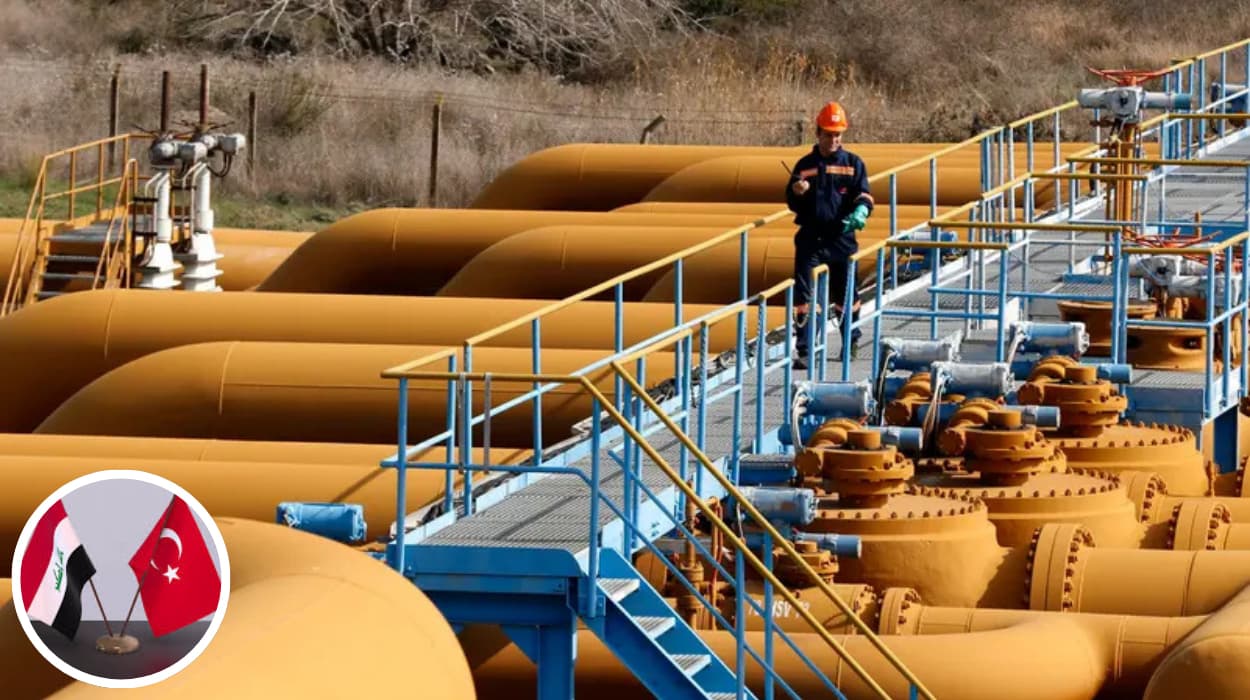Summary
- Turkey aims to initiate a new and vibrant phase in its oil pipeline cooperation with Iraq.
- The focus is on strengthening strategic energy ties between Iraq and Turkey.
- Ankara's official emphasized the importance of reviving and expanding pipeline projects.
- The move aligns with broader regional energy security and economic collaboration goals.
- The development may impact geopolitical dynamics in the Middle East energy sector.
With Turkey’s official statement underscoring intentions for a “new, vibrant” phase of the pipeline, Ankara is signaling more than a technical upgrade: it is articulating its ambition to assert itself as a pivotal energy corridor between the Middle East and Europe. This strategy is viewed as integral to Turkey’s foreign policy, economic development, and desire to foster deeper interdependence with Iraq. Experts note that such moves help secure Turkey’s own energy needs, increase regional economic integration, and position the country as a key stakeholder in the stability and prosperity of the broader region.
What is Ankara's vision for the Iraq-Turkey oil pipeline?
Ankara announced its intention to initiate a "new vibrant" phase regarding the Iraq-Turkey oil pipeline, emphasizing the importance of revitalizing this crucial infrastructure project. This position was articulated by an official spokesperson, reflecting Turkey's proactive approach to advancing its energy relations with Iraq. The official remarks suggest a strategic reassessment and reinforcement of ties to ensure that the pipeline’s full potential is harnessed for mutual benefit.
How does this pipeline impact Turkey-Iraq relations?
The Iraq-Turkey oil pipeline serves as a cornerstone for economic cooperation between the two neighboring countries. By bolstering this conduit for oil exports, Ankara seeks to deepen bilateral engagement, aiming to create a more robust partnership grounded in shared energy interests. As reported by Geo News and other regional media on July 21, 2025, this move is regarded as part of Turkey's broader diplomatic efforts to stabilize and expand its influence in the Middle East through energy diplomacy.
Why is Turkey prioritizing this energy corridor now?
Turkey’s renewed emphasis on the oil pipeline comes amid evolving geopolitical realities in the Middle East and an increasing global focus on energy security. By asserting greater cooperation with Iraq, Turkey likely intends to secure steady energy supplies and strengthen economic interdependence with a key neighbor. This strategy aligns with Ankara’s desire to leverage energy routes as channels of regional cooperation, potentially reducing vulnerabilities exposed by global energy market fluctuations.
What challenges and opportunities does this new phase entail?
While specific details have yet to be disclosed, the push for a revitalized collaboration phase hints at resolving prior impediments such as logistical bottlenecks, security concerns, or political disagreements that historically affected pipeline operations. On the opportunity front, increased throughput capacity and modernized infrastructure could significantly boost revenues for both nations and enhance energy export capabilities to international markets.
Who are the main stakeholders involved?
The project involves Iraqi oil producers, Turkish government agencies, and international partners who oversee or invest in pipeline infrastructure. Each party stands to benefit from enhanced efficiency and security of the oil flow. Additionally, broader regional actors watch these developments closely, as the pipeline plays an integral role in Middle Eastern energy dynamics.
What Are the Broader Implications for Regional Energy Security?
This announcement by Ankara, covered in regional news updates including Geo News and Samaa TV, illustrates a deliberate move towards reinforcing strategic energy corridors that transcend bilateral relations. The Iraq-Turkey oil pipeline supports not only economic objectives but also geopolitical stability, serving as a critical artery in the energy supply chain of the region.
The renewed focus on the pipeline comes at a time when global energy markets face uncertainty, with countries seeking reliable partners and diversified routes. As reported on July 21, 2025, Turkey’s approach signals its ambition to become a central energy hub connecting resource-rich countries like Iraq to world markets.
How Will This Affect Local Economies and Development?
Enhancing the Iraq-Turkey oil pipeline operations is expected to have multiple economic benefits. The envisaged new phase would likely translate into:
- Increased oil exports boosting revenues for Iraq.
- Enhanced revenue and job creation in Turkey through pipeline management, maintenance, and ancillary industries.
- Strengthened economic ties that foster stability and potentially open doors for further infrastructural projects.
These outcomes contribute positively to both nations’ development goals amid complex regional economic challenges.
What Has Been the Historical Context of the Iraq-Turkey Oil Pipeline?
The Iraq-Turkey oil pipeline has long been a symbol of cooperation despite intermittent tensions. It has faced operational challenges due to regional conflicts, political disagreements, and security threats. Turkey’s recent stated position aims to overcome past obstacles through enhanced diplomacy and strategic investment, seeking a sustainable operational model.
What Do Experts Say About This Development?
Energy analysts quoted indirectly by platforms like Geo News emphasize the importance of such pipelines as tools of both economic strategy and diplomacy. Sustained cooperation on the oil pipeline could not only improve bilateral ties but also serve as a template for regional integration in energy markets.
At the same time, some caution remains regarding the political complexities that could affect pipeline security and operation. Close monitoring of implementation phases will be essential to evaluate the success of Ankara’s new approach.
In conclusion, Ankara’s call for a vibrant new phase in the Iraq-Turkey oil pipeline collaboration marks a significant development in regional energy politics and economic relations. The success of this initiative could redefine Turkey’s role in Middle Eastern energy networks and bolster Iraq’s export capabilities, both critical factors in the region’s stability and growth.

